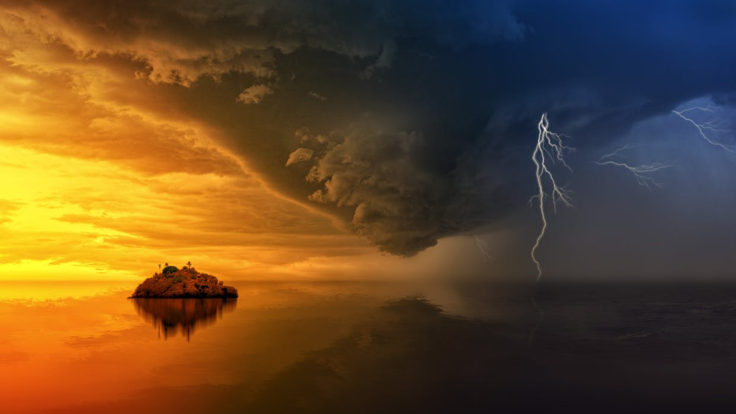How Strong Is Tropical Storm Melissa? Hurricane In Jamaica Now Considered Most Powerful In History
Tropical Storm Melissa has transformed into a catastrophic Category 5 hurricane, bringing historic winds, deadly rainfall, and widespread devastation across Jamaica.

Tropical Storm Melissa has rapidly intensified into a catastrophic Category 5 hurricane, now considered the most powerful in Jamaica's recorded history. With maximum sustained winds of 175 mph and even stronger gusts, the storm has become the strongest on the planet in 2025, marking an unprecedented moment in the Atlantic hurricane season.
The National Hurricane Center (NHC) has issued dire warnings of extensive infrastructure damage and life-threatening conditions across Jamaica and surrounding regions.
Jamaica Braces for Historic Landfall
Melissa's outer bands have already begun lashing Jamaica with destructive winds and torrential rain. Authorities have issued mandatory evacuation orders for vulnerable coastal communities ahead of its projected landfall on Tuesday morning, 14 October 2025. Near-hurricane force winds swept through Kingston early Monday, shaking windows and creating sleepless nights for residents as the storm's eye inched closer.
Reports from CNN's Derek Van Dam captured the eerie sound of gusting winds around 2 a.m. local time, showing sheets of rain battering the city. The NHC confirmed that Melissa remains a Category 5 hurricane as of 2 a.m. ET, with a minimum central pressure that has dropped from 909 millibars on Monday evening to 901 millibars early Tuesday. This sharp pressure decline suggests that the storm is continuing to strengthen, defying forecasts and intensifying at a rare pace.
Pressure Drop Indicates Growing Power
Meteorologists note that the lower a hurricane's central pressure, the more powerful it becomes. For context, Hurricane Katrina in 2005 reached a minimum pressure of 902 millibars, making Melissa's 901 millibars even more intense. NOAA Hurricane Hunters continue to fly through the system to collect wind data and pressure readings, with early findings suggesting even stronger winds forming within the eyewall.
Melissa's strength and pressure levels place it in an extremely rare category of storms. The combination of 175 mph sustained winds and a vast wind field means catastrophic conditions are expected across large parts of Jamaica. According to the NHC, up to 40 inches of rainfall, storm surges as high as 13 feet, and 160 mph sustained winds are anticipated, likely cutting off entire communities from emergency access.
Record-Breaking Strength and Duration
Melissa has now maintained its Category 5 status for a full 24 hours, from 2 a.m. ET Monday to 2 a.m. ET Tuesday, an achievement few Atlantic hurricanes have ever reached. This endurance sets Melissa apart from other powerful systems in recent years, including Hurricanes Humberto and Erin, which sustained peak strength for fewer than 12 hours.
By comparison, last year's hurricanes Milton and Beryl each held Category 5 intensity for 18 and 12 hours respectively, while 2023's Hurricane Lee maintained its peak for less than half a day. Meteorologists emphasise that Melissa's consistency in maintaining such strength underscores the extraordinary atmospheric conditions driving this event. Warm sea surface temperatures and low wind shear have provided the perfect environment for the storm's sustained power.
Deadly Impact Across the Caribbean
The human toll of Hurricane Melissa is already mounting. At least three fatalities have been confirmed in both Haiti and Jamaica, with one additional death reported in the Dominican Republic. Emergency services across the Caribbean are stretched thin, as flooding and debris have made several areas inaccessible.
Jamaica's authorities are urging residents to follow evacuation orders, as Melissa's approach threatens to devastate coastal towns. The government has mobilised emergency shelters and relief teams in anticipation of widespread power outages and damage to key infrastructure. With the potential for up to 40 inches of rainfall, officials warn of flash floods, landslides, and a long recovery period once the storm passes.
© Copyright IBTimes 2025. All rights reserved.





















